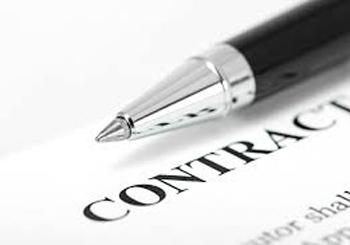

Once your property is on the market and receives an offer, or better yet multiple offers, you’ll want to have a plan of attack on how to review and evaluate the offer(s). It’s easy to look at the sales price, but there are many other aspects of a purchase offer that deserve your attention and may create a better situation for your bottom line and future plans.
1. Understand Your Options to Respond
You can respond to an offer in several different ways. You can accept it as-is without changes. You can negotiate the offer by submitting a counter offer to the prospective buyers with altered terms. You can reject the offer outright, or more effectively Catalano & Associates Realty utilizes a form called “Invitation to Buyers to Submit New Offer” in certain situations.
2. Don’t get emotional.
You probably have a strong emotional attachment to your home, but it is important not to take personal offense to an offer or its terms. Selling your home is a business transaction and you need to approach it with a a business mindset. Often, justification for a lowball offer is just a negotiation tool and you should treat it as just that.
3. Set Priorities.
Discuss in advance what terms are important to you and your future plans. If price is most important, you may be flexible on the closing timeline. If you have unusual relocation plans, a leaseback or longer closing timeline may be a key factor in your decisions.
4. Have a plan for offer review.
Speak with your Real Estate Professional about the likelihood of receiving multiple offers. If you are in a sellers market, it may be best to plan to review all offers in one week or the Monday following a weekend so that your Realtor will have time to market the property and you will have adequate time to compare and evaluate which may be the best offer for your situation.
5. Review offer terms on equal footing.
There are many terms to an offer other than just sales price. If a buyer asks for you to pay their closing costs, purchase a new survey, or leave behind your washer and dryer, those are expenses that will offset your bottom line.
6. Evaluate the buyers.
Your Real Estate Professional should do the legwork to check the buyer’s qualifications. Has a lender pre-qualified or pre-approved the buyer? If so, did they pull a credit report and verify the buyer’s income and assets with documentation? Is the contract dependent on the buyer qualifying for a loan and if so, how long will they be able to terminate the contract due to financing? Your Realtor will also help you evaluate the Earnest Money and Option Fee offered by the buyers. Sometimes offers are more attractive when the buyer has more skin in the game and more personal risk if they don’t follow through to closing.
7. Remember that finalized purchase agreements are most often the result of negotiation.
Your Real Estate Professional can work to identify what is important to the prospective buyer and leverage those items against points that are important to you, the seller. Just as there are many factors influencing your position, the buyers may have a home to sell, a closing deadline to meet, or another circumstance that is so important that they are flexible with their price or other terms in order to achieve their primary goals.